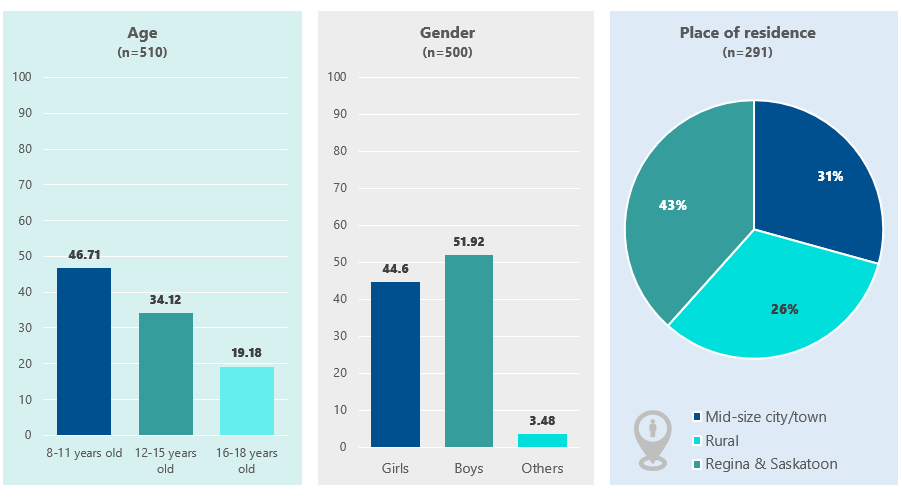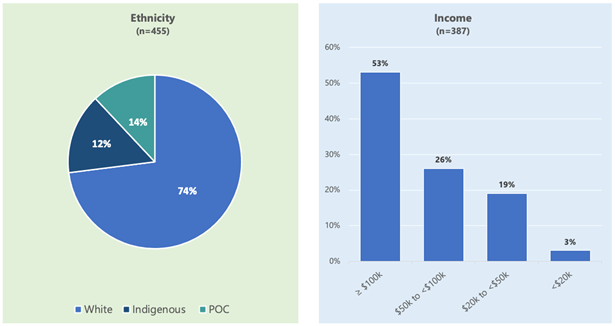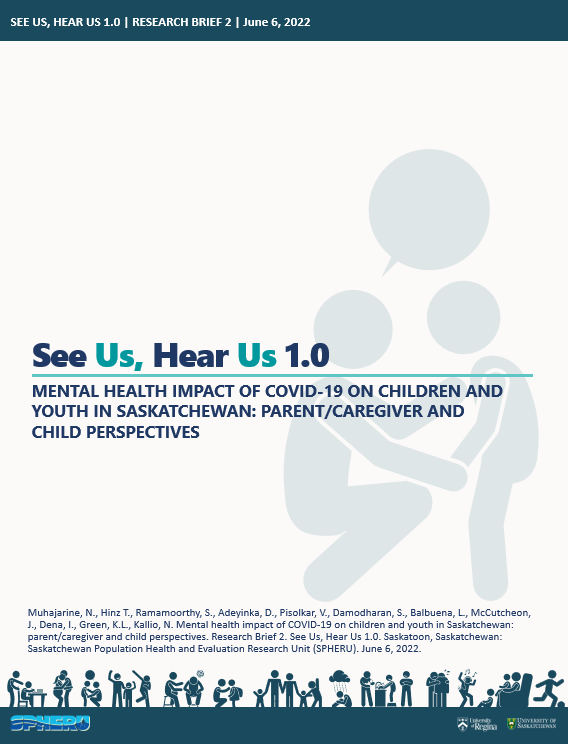About SUHU

About See Us, Hear Us 1.0
COVID and all the changes it has caused have been hard for many children, youth, and families in Saskatchewan. With this study, we want to answer the questions: “How has COVID affected the mental health of children and youth in Saskatchewan during pandemic? What are their needs for mental health services?” We want to find out: 1) how common mental health problems like anxiety and depression are in children and youth in Saskatchewan; 2) how these conditions are affecting children and youth and how well they are able to cope; and 3) whether children, youth, and their families can get the help they need for their mental health and how satisfied they are with the services they’ve received since COVID began.
The goal of this project is to provide useful data to enhance mental health services to children and youth, and support families in Saskatchewan. “The pandemic has caused enormous disruption in children’s lives,” explains Dr. Muhajarine. “We would like to know how our children and youth are faring in this pandemic, how they are coping, and whether they are getting the services and supports they need.
See Us, Hear Us: Children, youth, and families in Saskatchewan coping with mental health during the first year of COVID-19 pandemic includes three interrelated studies:
- SUHU 1.0 - Quantitative online/telephone survey of children/youth (8-18) and parent/caregiver dyads (completed--see results below)
- SUHU Qualitative - in-depth interviews with children/youth-parent/caregiver dyads who participated in the SUHU 1.0 survey
- NEW! SUHU 2.0 - Quantitative online/telephone survey of children/youth (8-18) and parent/caregiver dyads (Spring 2022)
If you have questions about the survey or our research project, please email seeus.hearus@usask.ca or contact:
Dr. Nazeem Muhajarine, Principal Investigator
Saskatchewan Population Health and Evaluation Research Unit (SPHERU)
Department of Community Health and Epidemiology, University of Saskatchewan
t: 306-966-7940 e: nazeem.muhajarine@usask.ca
Funders
SUHU 1.0 is funded by a Mental Heatlh Research Canada (MHRC)-Saskatchewan Health Research Foundation (SHRF) COVID-19 Child & Youth Mental Health Impact Grant. Funding Announcements:
- SHRF: SK researchers to assess the impact of COVID-19 on kids and families with funding from SHRF and MHRC
- MHRC: SEE US, HEAR US — Tracking children, youth & families in Saskatchewan coping with mental health during the first year of COVID-19

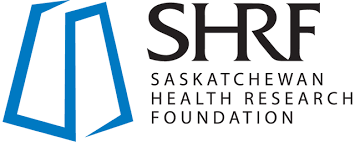
SUHU Qualitative is funded by a Royal University Hospital Foundation Community Mental Health Endowment Grant.
![]()
If you and/or your child have a medical or mental health emergency, call 911 or go to the nearest open clinic or emergency room. If you are concerned that you and/or your child are a danger to yourself and/or themselves or to others, call 911 or go to the nearest open clinic or emergency room.
If you are upset, struggling with mental health, and/or need help with how you are feeling:
-
- talk to someone you trust and/or encourage your child to talk to you or another person they trust
- connect with a health and/or mental health care provider (e.g., doctor, nurse practitioner, counsellor, social worker, psychiatrist, etc.).
- use the mental health and COVID-19 resources available to you online or by phone, including:
- Call 8-1-1: confidential, free, 24-hour health and mental health and addictions advice, education, and support telephone line available to the people of Saskatchewan, staffed by experienced and specially trained Registered Nurses, Registered Psychiatric Nurses, and Registered Social Workers. If you are having technical issues with accessing HealthLine 811 by dialling 811, you can call 1-877-800-0002 to be connected with HealthLine 811.Deaf and hard of hearing residents can access HealthLine 811 by using the SaskTel Relay Operator service at 18008550511.
- Call the Kids Help Phone at any time at 1-800-668-6868 or visit https://kidshelpphone.ca/ to text, FB message, or chat 24/7:
- Mental Health Community Resources: https://www.saskatchewan.ca/government/health-care-administration-and-provider-resources/treatment-procedures-and-guidelines/emerging-public-health-issues/2019-novel-coronavirus/resources
- COVID-19 Information and Resources: https://www.saskatchewan.ca/government/health-care-administration-and-provider-resources/treatment-procedures-and-guidelines/emerging-public-health-issues/2019-novel-coronavirus
See Us, Hear Us Research Team
Principal Investigators:
 Dr. Nazeem Muhajarine
Dr. Nazeem Muhajarine
Department of Community Health and Epidemiology
College of Medicine, University of Saskatchewan
Saskatchewan Population Health and Evaluation Research Unit (SPHERU)
t: 306.966.7940 e: nazeem.muhajarine@usask.ca
 Dr. Tamara Hinz
Dr. Tamara Hinz
Department of Psychiatry
College of Medicine, University of Saskatchewan
Saskatchewan Health Authority
t: 306.844.1004 e: tamara.hinz@usask.ca
Researchers:
- Daniel Adeyinka, Postdoctoral Fellow, Researcher, SPHERU and Community Health & Epidemiology, University of Saskatchewan, e: daa929@mail.usask.ca
- Mariam Alaverdashvili, Research Facilitator, Psychiatry, USask, e: mariam.alaverdashvili@usask.ca
- Lloyd Balbuena, Faculty, Psychiatry, USask, e: balbuena@usask.ca, t: 306.844.1306
- Senthil Damodharan, Faculty, Psychiatry, USask and Saskatchewan Health Authority, e: skd357@mail.usask.ca
- Kathryn Green, former Faculty, Community Health & Epidemiology, USask
- Emma Hamid, Resident, Psychiatry, USask, e: emh859@mail.usask.ca
- Christa, Community Council member/EGADZ Downtown Youth Centre representative
- Natalie Kallio, Research Officer, SPHERU, USask, e: kallio@usask.ca, t: 306.966.2237
- Thuy Le, Research Officer, Psychiatry, USask, e: le@usask.ca, t: 306.844.1293
- Jessica McCutcheon, Survey Research Manager and Specialist, CHASR, USask, e: mccutcheon@usask.ca, t: 306.966.6525
Student Researchers:
- Isabelle Dena, PhD student, Community Health & Epidemiology/RSW, e: Isabelle.Dena@usask.ca
- Vaidehi Pisolkar, PhD student, Community Health & Epidemiology, e: vap051@mail.usask.ca
- Fady Sulaiman, Medical student, College of Medicine, USask, e: fss502@mail.usask.ca
- Vithusha Coomaran, Medical student, College of Medicine, USask, e: vvic214@mail.usask.ca
- Nirma Tahir, Medical student, College of Medicine, USask, e: nimra.tahir@usask.ca
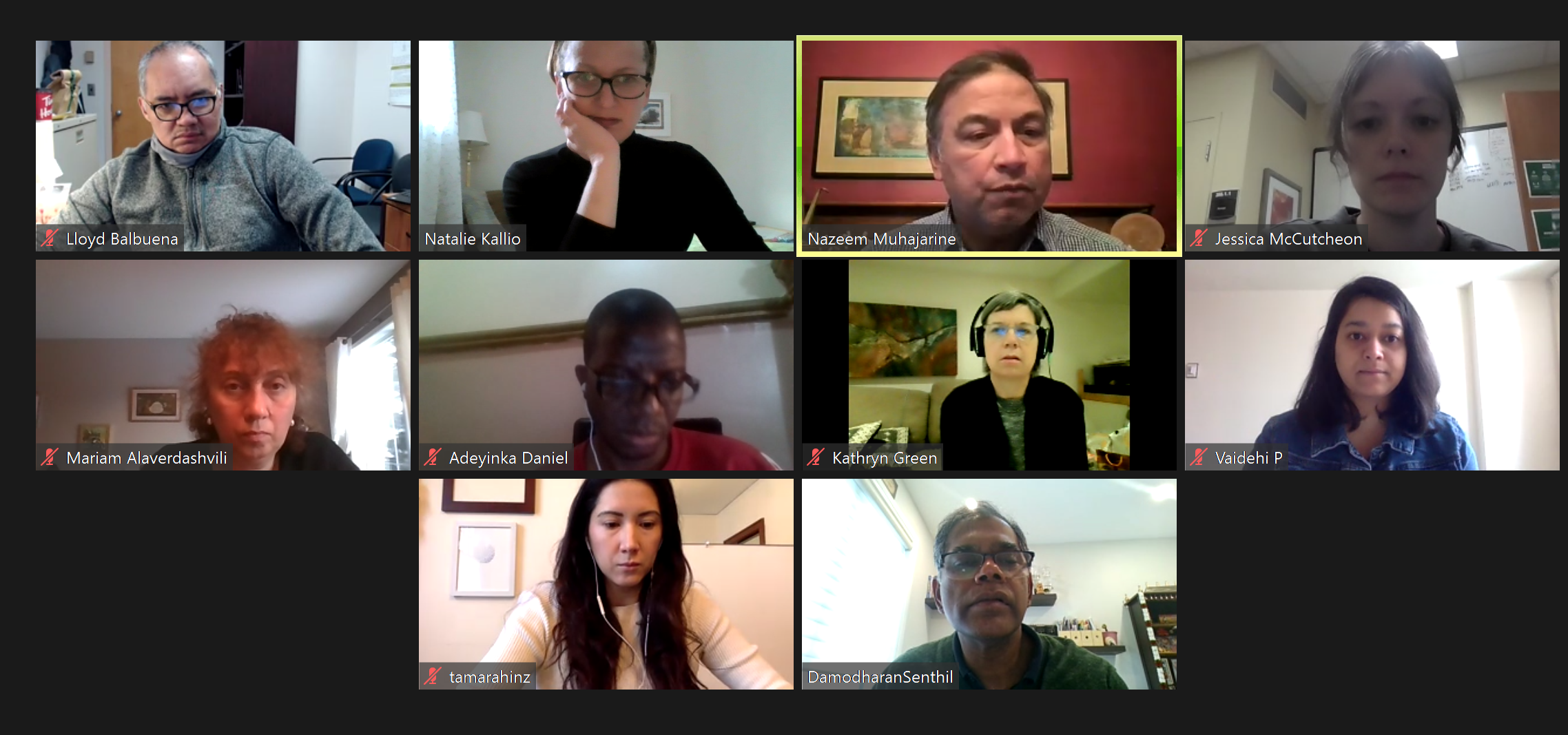
Acknowledgements
The Research Team is advised by the children, youth, and parents on our See Us-Hear Us Community Council. Immense thanks to you all for your expertise, dedication, and advice on all aspects of the project. Special thanks to Janice and Aubrie for your invaluable assistance on the See Us, Hear Us proposal.
Project Partners
 |
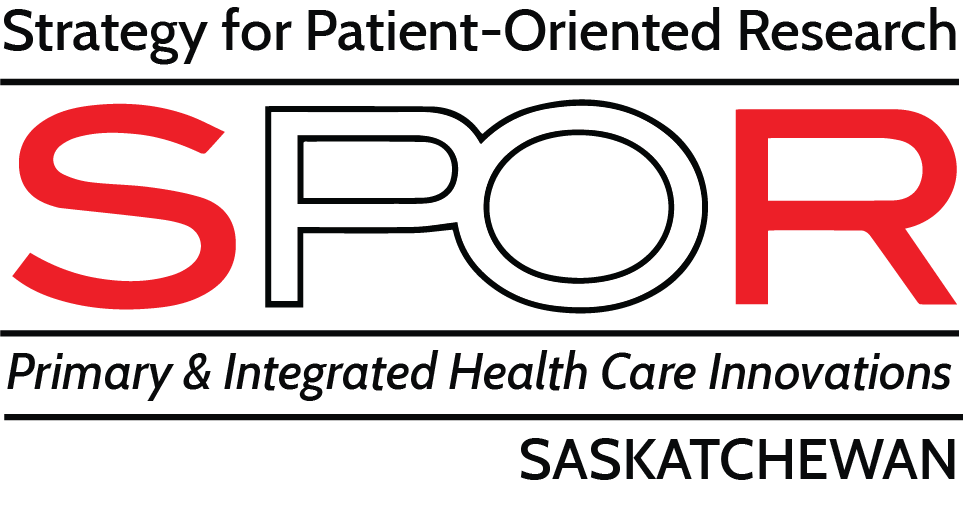 |
| EGADZ Saskatoon Downtown Youth Centre Inc. | Strategy for Patient Oriented Research Saskatchewan |
Funders
 |
 |
SUHU 1.0 Results
Results from the SUHU 1.0 Qualitative Study
The second phase of the SUHU1.0 study consisted of collecting qualitative data to understand the pandemic’s effects on the lives of children, youth and families. We conducted in-depth interviews with 30 child-parent pairs (selected from our survey sample of 510 dyads). Parents and children were asked how the pandemic had affected their mental health, what had made it easier or harder for them to cope and seek mental health services in Saskatchewan during the pandemic. This report highlights findings from our qualitative interviews with children and youth (8-18 years) and their parents.
Results from the See Us, Hear Us 1.0 survey (SUHU 1.0), the project’s quantitative component.
The quantitative data were collected from 510 dyads of children and youth (8-18 years of age) and their parent/caregiver via an online survey conducted between March 19 and July 27, 20211. Participants were recruited via Canadian Hub for Applied and Social Research (CHASR) Saskatchewan Community Panel and participating Saskatchewan public and Catholic school divisions, First Nations-administered schools, and independent schools. The survey was conducted in English and French; paper and telephone- and paper-based surveys were available upon request. Data analysis was conducted by researchers from the Saskatchewan Population Health and Evaluation Research Unit (SPHERU).
Special Issue: Taking the Pulse of COVID-19 in Saskatchewan—in 7 charts: Are the kids alright?
February 15, 2022 (Issue 9) - Preliminary results from See Us, Hear Us: Children, youth, and families in Saskatchewan coping with mental health during the first year of the COVID-19 pandemic (SUHU 1.0). In this issue, we present key takeaways and descriptive results for child and youth respondents in three age groups: 8-11, 12-15, and 16-18 years old.
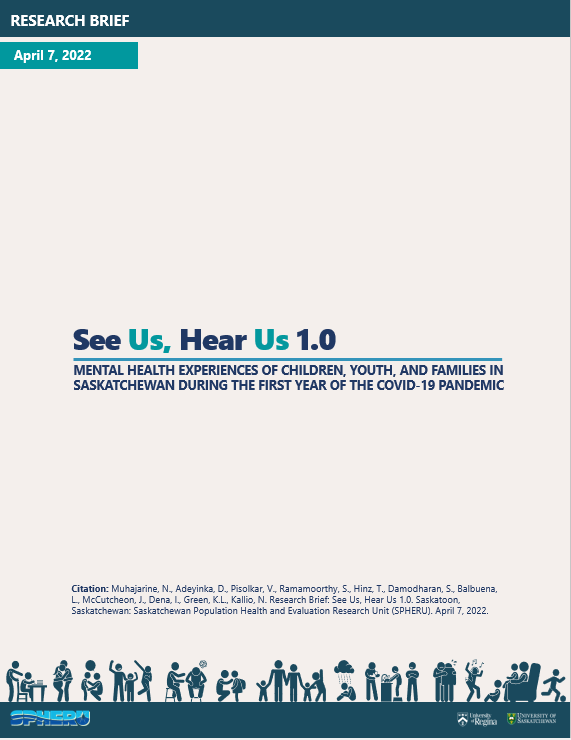
April 7, 2022 - In this report, we present results from the SUHU 1.0 survey, the project’s quantitative component, measuring the prevalence of mental health of children, youth, and their families during the first year of the
COVID-19 pandemic in Saskatchewan, how they were coping, whether they were receiving the mental health support they need, and how satisfied they were with the services they have received since the COVID-19 pandemic.
June 6, 2022: Often parents and caregivers act as proxies for children in surveys, especially when kids are not capable or competent enough to complete the survey by themselves, but children and their parents/caregivers may have different perspectives. The current study aimed to examine correspondence between parent/caregiver and their child in the assessment of change in child’s overall mental health and need for help in the first year of the COVID-19 pandemic in Saskatchewan. Further, the study explored factors associated with agreement/disagreement between caregiver/parent’s and child’s reporting of change in child’s overall mental health and child’s help seeking behaviour.
Between March to July 2021, 510 children/youth (8-18 years of age) and parent/caregiver dyads (1,020 individuals) participated in our online/telephone See Us, Hear Us survey. This sample—recruited via the Canadian Hub for Applied and Social Research (CHASR) Saskatchewan Community Panel and Saskatchewan school divisions and independent schools—is representative of the families and children in Saskatchewan.
Our team is currently analysing the data and comprehensive results will be available soon. Our preliminary analysis revealed:
- 59% of children/youth said changes to their lives due to COVID were somewhat or a lot more bad than good. Only 16% said the changes were somewhat or lot more good than bad.
- 37% of children/youth said that change on overall mental health was much or slightly worse during Covid (vs 4% who said slightly or much better). 15% reported lots of ups and downs. For another 7%: worse at the beginning, but now has gotten better.
- Family and friends, therapist/psychiatrist, teacher/school counselor, and family doctor, in that order, are those who kids turned to for help.
Demographic Characteristics of SUHU 1.0 Respondents (children and youth 8-18 and their families)
